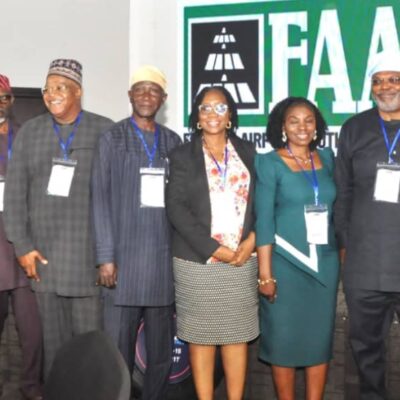
The Nigerian Meteorological Agency (NiMet) is a crucial arm of the Federal Government of Nigeria, entrusted with a wide range of responsibilities in meteorology.
From providing vital weather forecasts essential for the safe operations of aircraft, ocean vessels, and oil rigs, to monitoring air quality and supporting public health initiatives, NiMet’s role is pivotal in ensuring the safety and well-being of Nigerians.
Yet, a recent report from a nationwide audit has revealed the disturbing state of the agency’s air quality monitoring network, casting a shadow over its ability to fulfill its critical mandate effectively.
Commissioned by NiMet’s management under the leadership of its Director-General and CEO, Prof. Charles Anosike, in February 2024, the audit was intended to evaluate the operational status of seven key air quality monitoring stations strategically placed across the country.
These stations—located in Sokoto, Kano, Maiduguri, Yola, Enugu, Lagos, and Abuja—represent a significant financial investment and are vital in collecting data that informs environmental policies and public health measures nationwide.
The audit, led by Mrs. Olumide Olaniyan, General Manager of NiMet’s Air Quality Monitoring Unit, uncovered findings that can only be described as deeply troubling.
The report disclosed that, with the exception of the recently installed Sokoto station and the ongoing installation in Yola, the remaining five stations are in an alarmingly poor state.
This dire situation is not merely a reflection of neglect but rather an indication of the systemic issues that have plagued the agency’s operations over the years.
Among the most shocking revelations was the situation in Kano, where the contractor responsible for installing the station has failed to complete the project over five years after the contract was awarded.
This gross delay has resulted in the station being non-operational, with no official handover to NiMet, leaving the facility in limbo. Similarly, the Enugu station, which was fully functional after its installation in 2013, ceased operations in 2015.
The specialized gas analyzers and wind sensor, vital for measuring pollutants like CO, NO2, SO2, and PM10, were removed by the contractor in 2019 for servicing and upgrades but have yet to be returned. The result is a station that has remained dormant for years.
The audit further highlighted a series of grave issues, including ill-conceived contracts, lack of contractor compliance, and outright abandonment of the air quality monitoring stations.
These systemic failures have rendered the stations incapable of performing their intended function, thus compromising the agency’s ability to protect public health effectively.
Professor Charles Anosike, the DG/CEO of NiMet, expressed the necessity of conducting the audit to gain a comprehensive understanding of the state of the agency’s equipment. “We have been mandated by the Honourable Minister of Aviation and Aerospace Development, Festus Keyamo, SAN, to ensure strict compliance with safety regulations as part of the 5-point agenda for Nigeria’s aviation sector.
The findings of this audit, though shocking, are crucial in determining where to channel our resources moving forward,” he stated.
One of the most significant challenges identified in the report is the unreliable power supply that plagues many of NiMet’s air quality monitoring stations.
The persistent instability of power, coupled with inadequate backup systems, has led to frequent malfunctions and breakdowns of sensitive monitoring equipment.
These power-related issues have not only caused extended downtimes but have also severely compromised the reliability of data collection, undermining the continuity and integrity of the monitoring process.
Despite the bleak picture painted by the audit, there is a glimmer of hope.
The current management, under Prof. Anosike, has demonstrated a keen interest in revitalizing NiMet’s air quality monitoring network. The DG/CEO, who has been in office for just eight months, has already begun implementing some of the audit’s recommendations, focusing on upgrading and replacing outdated equipment to restore the network’s functionality.
However, these efforts will require substantial financial support from relevant authorities. Increased funding is essential for procuring new equipment, maintaining existing facilities, and building the capacity of NiMet’s personnel.
Recognizing the importance of skilled staff, the agency organized a comprehensive training program in July 2024 for its Air Quality Monitoring Unit. Held at the WMO Regional Training Centre in Oshodi, Lagos, the program covered modern air quality monitoring techniques, emphasizing the integration of satellite data, in-situ data from Reference Grade Monitors, and low-cost sensor data for enhanced air quality monitoring and analysis.
The audit report, while damning, also presents an opportunity—a call to action for the current leadership of NiMet.
By addressing the challenges head-on and adopting a forward-looking approach, the agency can rebuild a robust, reliable, and sustainable air quality monitoring network.
This network will be crucial not only for fulfilling NiMet’s mandate but also for informing evidence-based policymaking and contributing to sustainable development initiatives across Nigeria.
In conclusion, the report underscored the need for a renewed commitment to proactive maintenance, resource allocation, and collaboration with stakeholders. Only through such efforts can NiMet reaffirm its role as a vital contributor to environmental protection and the broader goal of creating a healthier, more sustainable environment for all Nigerians.
Babatunde Ajayi, a climate and environmental activist, wrote from Lagos.
Olapeju is a journalist and aviation reporter.





